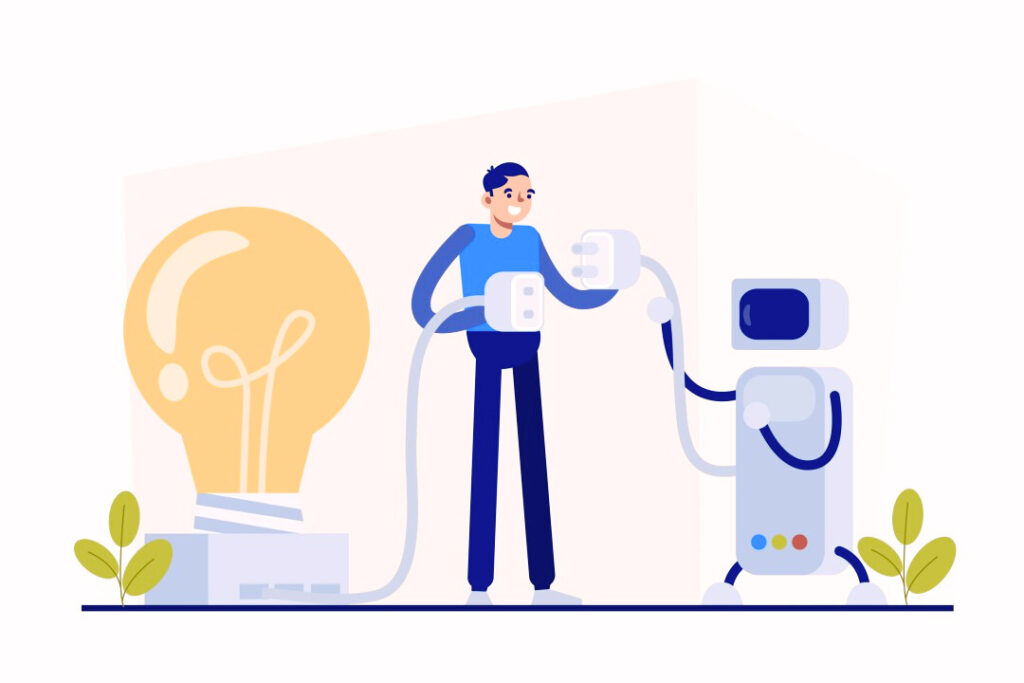In the ever-evolving landscape of work, technology and institutions play pivotal roles in shaping not only job roles but also the very fabric of our professional lives. This article delves into the intricate relationship between technology and institutions, exploring how they collaborate to define the work of the future.
Introduction
The dawn of the digital age has ushered in a new era, transforming the way we work and interact within our professional spheres. In this era of rapid technological advancement, understanding the synergy between evolving technologies and adaptive institutions is crucial to navigating the complexities of the modern workplace.
The Evolution of Technology in the Workplace
To comprehend the current state of affairs, a brief journey into the evolution of technology in the workplace is necessary. From the industrial revolution to the digital revolution, each phase has redefined the nature of work, creating both challenges and opportunities for individuals and industries.
Current Technological Landscape
In today’s landscape, technologies such as artificial intelligence, machine learning, and automation are not just buzzwords but integral components of various industries. Businesses are leveraging these advancements to streamline processes, enhance productivity, and gain a competitive edge in the market.
Institutions Adapting to Change
As technology advances, institutions, both traditional and modern, must adapt to these changes. Educational institutions, in particular, are tasked with equipping individuals with the skills required for a tech-driven workforce. This section explores how institutions are embracing innovation to stay relevant in an ever-changing environment.
Challenges and Opportunities
However, this technological shift brings its own set of challenges. Job displacement, skill gaps, and ethical considerations are hurdles that must be navigated. Yet, within these challenges lie opportunities for innovation, growth, and the creation of new, previously unimagined roles.
The Future Workforce
The workforce of the future will require a unique set of skills. Adaptability, critical thinking, and continuous learning will be paramount. This section delves into the qualities that will define successful professionals in the years to come.
Collaboration between Technology and Institutions
A symbiotic relationship between technology and institutions is crucial for progress. Successful collaborations between businesses and educational entities are showcased, demonstrating how both can thrive when working in tandem.
Impact on Job Satisfaction and Well-being
While technological advancements promise increased efficiency, it’s essential to consider their impact on employee satisfaction and well-being. Striking a balance between work and personal life becomes even more critical in a world where technology is omnipresent.
Ethical Considerations
As we harness the power of technology, ethical considerations come to the forefront. This section explores the ethical implications of technological integration in the workplace and advocates for responsible innovation.
Governmental Role in Shaping the Future
Governments play a vital role in shaping the future of work through policies and initiatives. This section provides an overview of governmental involvement and its impact on the intersection of technology and institutions.
Global Perspectives
While the future of work is a global phenomenon, different countries approach it in distinct ways. By comparing strategies and learning from one another, a more cohesive and collaborative global effort can be achieved.
Predictions and Speculations
What does the future hold? Experts weigh in on potential breakthroughs, trends, and challenges that may shape the landscape of work in the coming years. While predictions are speculative, they provide valuable insights for individuals and industries preparing for what lies ahead.
The Human Touch in a Tech-Driven World
Amidst the whirlwind of technological advancements, it’s crucial to retain the human touch in our professional interactions. This section emphasizes the importance of soft skills, empathy, and personal connections in fostering a positive and collaborative work environment.
Conclusion
In conclusion, the future of work is an intricate tapestry woven by the interplay of technology and institutions. Navigating this landscape requires adaptability, innovation, and a keen understanding of the symbiotic relationship between the two.
FAQs
1. How can individuals prepare for the future workforce?
- Tips on acquiring relevant skills and staying adaptable.
2. What ethical considerations should businesses prioritize in a tech-driven world?
- Insights into responsible innovation and ethical decision-making.
3. How do governments influence the integration of technology in the workplace?
- Exploring the role of governmental policies in shaping the future of work.
4. What are the key challenges faced by institutions in adapting to technological changes?
- Addressing common hurdles and strategies for overcoming them.
5. How can businesses and educational institutions collaborate for mutual benefit?
- Case studies and examples showcasing successful collaborations.
